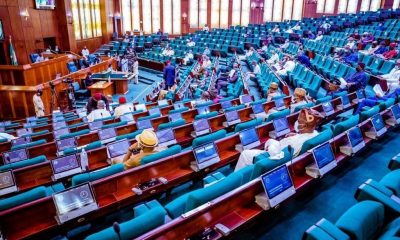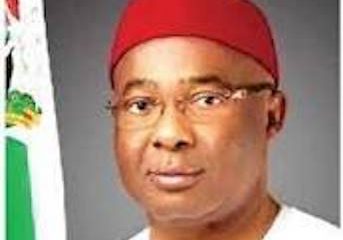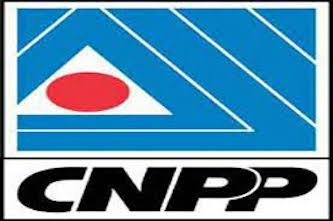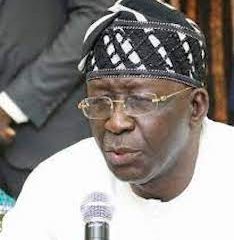Business News
Why Nigeria Didn’t Sign OECD Minimum Corporate Tax Agreement — FIRS

By Tony Obiechina, Abuja
The Federal Inland Revenue Service (FIRS) has explained why Nigeria did not sign the Organisation for Economic Cooperation and Development (OECD) G20 Inclusive Framework two-pillar solution to tax challenges of the digitalized economy. The OECD G20 Inclusive Framework two-pillar solution proposes a framework of rules aimed at tackling base erosion and profit shifting, and providing for the taxation of Multinational Enterprises (MNEs).
He explained that the webinar was therefore to educate the general public on the modalities and impact of the statement released by the OECD Inclusive Framework on the 8th of October 2021 and to provide a broad picture on why Nigeria abstained from signing. The webinar which was a special edition of the FIRS Taxpayer Engagement Series was hosted by Mr. Olufemi Olarinde, Technical Assistant (Tax Policy) to the Executive Chairman FIRS, while technical papers where delivered by Mr. Mathew Gbonjubola, Mr. Temitayo Orebajo, Mr. Kehinde Kajesomo, Mr, Emmanuel Eze and Ms. Aisha Isa, all staff of the FIRS. Explaining in details, Mr. Mathew Gbonjubola, the Group Lead Special Tax Operations Group, and Nigeria’s representative at the OECD Inclusive Framework highlighted that despite the expected outcome that both Pillars will increase Global Corporate Income Tax by as much as $150 Billion per annum, with attendant favourable environment for investment and economic growth, there were serious concerns that the pillars did not address negative revenue outcome for Nigeria and other developing countries. “The general issues that developing countries have with the outcome that was published in October 8th is the high cost of implementation. And that speaks to the complexities of the proposal in the inclusive framework statement. In every complex situation or rule, implementation and compliance will always be difficult. When implementation or compliance is difficult, there would be high cost of implementation. “Another issue was that the economic impact assessment that was carried out on Pillar 1 and 2 were founded on an unreliable premise. The country-specific impact assessment that was done was top-down. Somebody just looked at the GDP of Nigeria, and says Nigeria’s GDP is this much and then they should be able to buy this number of shoes and things like that. And you and I know, in that kind of postulation, the margin of error is usually very wide. That exactly was what happened with this. Particularly for Nigeria, when we ran the numbers it was way off the figures that the OECD gave us. “And the final issue most developing countries had was that the developed world, within the inclusive framework, was very indifferent to the concerns expressed by most developing countries. This you can see from the outcome, with respect to the complexity, issues of high cost of implementation and on the issue of revenue accruable to developing countries. When you look at the bulk of the money that would accrue from the project, if any, 70% – 80% will go to the developed countries. Almost nothing comes to the developing countries.” He explained. On the specific concerns raised by Nigeria, Mr. Gbonjubola, who led Nigeria’s team on the Inclusive Framework negotiations, explained that while the whole project started out to find solutions to the challenges of a digitalised economy the outcome was completely different. He went further to note that the statement by the OECD Inclusive Framework required all parties to remove all Digital Service Taxes and other relevant similar measures with respect to companies taxation and to commit not to introduce such measures in the future. “The statement required the withdrawal of unilateral measures by countries. Which Nigeria does not have a problem with (Nigeria does not have any unilateral measure targeted at digital services companies). However, the paper that was released on unilateral measures was so expansive in its definition that we are concerned that the taxing rights that Nigeria has always enjoyed may be withdrawn.” He further explained that Nigeria is unable to implement the mandatory binding resolution on arbitration because of constitutional limitations as to tax dispute resolution. He also stated that for Nigeria, “Pillar 2 is not a deal breaker because Nigeria could work with Pillar 2. “We have a few issues with Pillar 2 but we could live with them but because Pillar 1 and 2 are a single package, since we are rejecting Pillar 1, we can’t take on Pillar 2”. “Under the inclusive framework rule you either accept both Pillars or you reject both Pillars. You cannot pick one to the exclusion of the other. And since Nigeria is not able to join one of the pillars, it means we are out of both Pillars.” Mr. Gbonjubola also stated that Nigeria does not see any additional revenue coming to by way of Pillar 2, though he added that it could act as a behaviour modifier for policy makers to take another look at the various tax incentives and tax waivers we have in our tax laws and begin to restructure them in other to ensure that we are not deliberately throwing away revenue. “Nigeria could not sign up to the statement of the inclusive framework because it did not address the concerns that we had expressed as a country and it also did not take cognisance of issues around developing countries, which will make those outcomes not to provide additional revenue, and if any, very little, and at very significant cost.” He further stated that Nigeria, which had participated in all the meetings of the working groups would continue to participate in the design of all technical notes and model rules, and would agree to the Pillars if its expressed concerns are addressed. “And finally, just like the Honourable Minister of Finance said a couple of months ago, Nigeria would continue to participate in the inclusive framework activities particularly the design of all the technical notes and the model rules, and then, if and only if, the concerns we have expressed are addressed, then Nigeria still has the chance to join up and to sign up. But if not, we will leave that to our policy makers to decide going forward” The Webinar had in attendance Prof. Abiola Sani, a professor of Commercial Law in Nigeria as well as other eminent tax practitioners and representatives of government and private institutions. The representatives of the Kenya and Zambia revenue authorities were also in attendance.
Business News
Afreximbank Closes $282 million India-focused Club Deal

By Tony Obiechina, Abuja
The African Export-Import Bank (Afreximbank) has announced the successful completion of a first-of-its-kind India-focussed club deal for US$282.00 million.
Initiated for the exclusive participation of Indian lenders, and arranged by Bank of Africa UK PLC, the primary syndicated club deal saw participation from Indian lenders through their overseas branches and subsidiaries in the Dubai International Financial Centre in the United Arab Emirates, Singapore and Mauritius.
The facility, which was backed by six participating banks and financial institutions, including five that joined as first-time lenders to Afreximbank, helping the Bank achieve its objective of diversifying its funding sources, carries a three-year tenor.
At a commemorative event held in Dubai, U.A.E., to mark the conclusion of the deal, Haytham ElMaayergi, Executive Vice President at Afreximbank, said that the conclusion of the initiative represented a major milestone for the Bank as it sought to fulfil the key objectives of its funding programme.
Highlighting the importance of investing in, and for, Africa, Mr. ElMaayergi said: “this facility will help Afreximbank to continue to play a major role in the development of intra-African trade and trade between Africa and the rest of the world, particularly with India.
It is a testament to the rapid growth in Africa’s economic relationship with India and is evidence of Afreximbank’s growing ability to harness resources into Africa and to fund trade finance related investments that would have a positive impact on trade between Africa and India.”
Chandi Mwenebungu, Director and Group Treasurer of Afreximbank, reviewing the Bank’s vision for Africa, said that its funding objectives included achieving the diversification of its liability book by geography, investor type and tenor.
Also addressing guests at the event were Said Adren, CEO of Bank of Africa UK PLC, who thanked the lenders for their participation, and Zineb Tamtaoui, General Manager of Bank of Africa, Dubai Branch, who expressed appreciation for the opportunity to put together “a landmark deal that would be a stepping stone to many India-focused club deals going forward.”
Business News
Geregu Power Earns N50.4bn From Electricity Sales, Capacity Charges
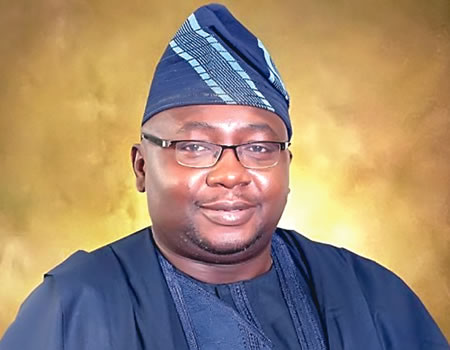
By Tony Obiechina, Abuja
Geregu Power Plc has generated N50.4bn on electricity sales and capacity charges to Nigerians in the first quarter of 2024.
The power company which is the first listed power company of the Nigerian Exchange Ltd disclosed the performance in its Q1, 2024 financial statement.
The company grew its Q1 revenue by 225 per cent from N14.
2bn in 2023 to N50. 4bn in 2023.A breakdown reveals that Geregu Power sold energy worth N31bn and received N19bn as revenue from capacity charge.
Recall that the power company posted an annual revenue of N82.9bn in the full year of 2023 but it has covered half of the amount in Q1.
The revenue was above the company’s forecast for Q1 2024 when it projected its revenue to rise to N31.24bn.
Geregu Power recorded a profit before tax of N21.9bn up from the N5.3bn recorded in Q1 of last year, reflecting 307.8 per cent growth.
During the period underreview, the company saw its profit after tax rose by 307.3 per cent to N14.46bn from N3.54bn recorded in Q1 of last year. In the full year 2023, the company made N16.1bn net profit.
The net profit was above the company projection of N5.5bn.
Geregu Power took an income tax charge of N7.43bn, up from the N1.8bn in Q1 2023. The tax charges were higher than the N2.7bn projected for Q1 2024.
The company also spent N21.5bn on the cost of sales involving gas supply and transportation, up from the N6.6bn spent on gas supply and transportation in Q1 2023.
Business News
CBN Shakes Up Banking Sector: A Paradigm Shift Unveiled

By Ademola Oyetunji
In a surprising turn of events on Wednesday, the Central Bank of Nigeria (CBN) dissolved the boards of three prominent commercial banks – Keystone, Polaris, and Union Bank. This move, although unanticipated, transpired despite the Central Bank’s recent endorsement of these banks’ financial soundness.
Governor Olayemi Cardoso, at his inaugural address during the Chartered Institute of Bankers of Nigeria (CIBN) annual dinner last year, had lauded Nigeria’s financial sector’s resilience in 2023.
Stress tests conducted on the banking industry indicated its strength under various economic scenarios. However, Cardoso highlighted the need for banks to reassess their responsible banking framework, a sentiment echoed by President Tinubu.President Tinubu’s evident discontent with the Godwin Emefiele-led CBN triggered a comprehensive review of the financial system. A special investigator, Jim Obazee, was appointed to conduct a forensic investigation into Emefiele’s tenure, with damning revelations emerging. Recent developments suggest the initiation of a full-blown financial system reform.
The CBN’s dissolution announcement and the subsequent appointment of new executives for the affected banks, including Yetunde Oni, Mannir U. Ringim, Hassan Imam, Chioma A. Mang, Lawal M. Omokayode, and Chris Onyeka Ofikulu, might mark the beginning of implementing the investigation’s recommendations – a significant cleanup of the financial sector.
Allegations surfaced during the investigation, suggesting non-cooperation from some bank executives and Emefiele’s questionable acquisitions through proxies and cronies. Cardoso may have secured presidential approval for the CBN’s decisive action.
The CBN cited various infractions by the banks, including regulatory non-compliance, corporate governance failures, and activities threatening financial stability. Despite the challenges, the CBN assured the public of depositors’ fund safety and its commitment to upholding a safe, sound, and robust financial system.
The Special Investigator’s report revealed documents pointing to Emefiele’s involvement in Titan Trust Bank and Union Banks’ acquisitions with ill-gotten wealth. The CBN’s swift replacement of the ousted chief executives received widespread commendation, especially from high-net-worth stakeholders aiming to avert a crisis of confidence within the affected banks.
Adewale Aderounmu, an industrialist, applauded the CBN for implementing effective policies under Olayemi Cardoso’s leadership, despite detractors’ actions against the Naira. Ayomide Deepak, an Abuja-based stockbroker, welcomed the action but emphasized the need for caution in handling revelations from the investigation to prevent further economic challenges.
As the CBN wields its regulatory hammer on these banks, the hope is that other bank executives and investors will learn valuable lessons for the sake of the economy. The CBN’s action is perceived as a strategic move aimed at revitalizing the economy and financial system, not a mere vendetta.
*Ademola Oyetunji writes from Ibadan.











